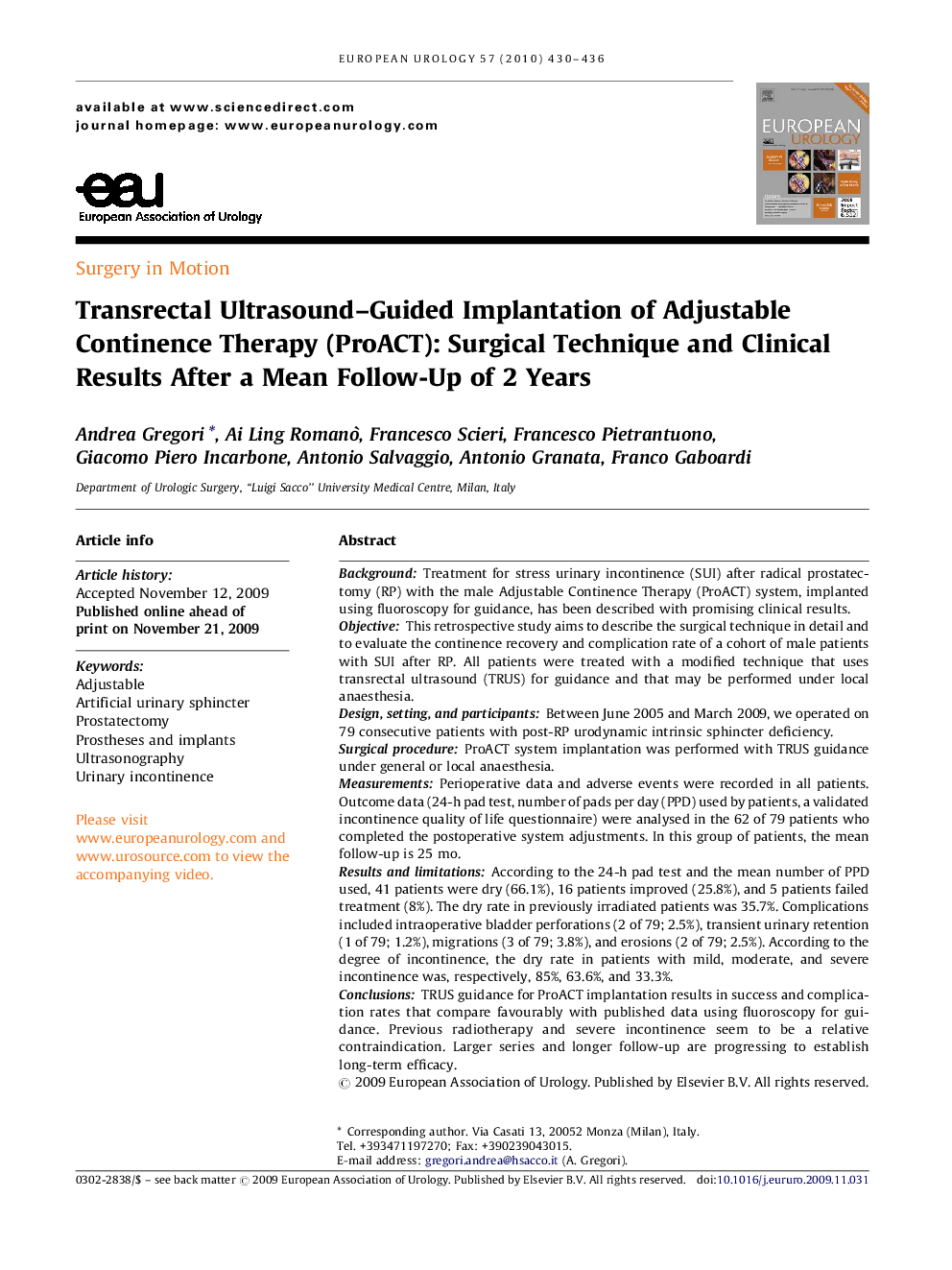| Article ID | Journal | Published Year | Pages | File Type |
|---|---|---|---|---|
| 3926979 | European Urology | 2010 | 7 Pages |
BackgroundTreatment for stress urinary incontinence (SUI) after radical prostatectomy (RP) with the male Adjustable Continence Therapy (ProACT) system, implanted using fluoroscopy for guidance, has been described with promising clinical results.ObjectiveThis retrospective study aims to describe the surgical technique in detail and to evaluate the continence recovery and complication rate of a cohort of male patients with SUI after RP. All patients were treated with a modified technique that uses transrectal ultrasound (TRUS) for guidance and that may be performed under local anaesthesia.Design, setting, and participantsBetween June 2005 and March 2009, we operated on 79 consecutive patients with post-RP urodynamic intrinsic sphincter deficiency.Surgical procedureProACT system implantation was performed with TRUS guidance under general or local anaesthesia.MeasurementsPerioperative data and adverse events were recorded in all patients. Outcome data (24-h pad test, number of pads per day (PPD) used by patients, a validated incontinence quality of life questionnaire) were analysed in the 62 of 79 patients who completed the postoperative system adjustments. In this group of patients, the mean follow-up is 25 mo.Results and limitationsAccording to the 24-h pad test and the mean number of PPD used, 41 patients were dry (66.1%), 16 patients improved (25.8%), and 5 patients failed treatment (8%). The dry rate in previously irradiated patients was 35.7%. Complications included intraoperative bladder perforations (2 of 79; 2.5%), transient urinary retention (1 of 79; 1.2%), migrations (3 of 79; 3.8%), and erosions (2 of 79; 2.5%). According to the degree of incontinence, the dry rate in patients with mild, moderate, and severe incontinence was, respectively, 85%, 63.6%, and 33.3%.ConclusionsTRUS guidance for ProACT implantation results in success and complication rates that compare favourably with published data using fluoroscopy for guidance. Previous radiotherapy and severe incontinence seem to be a relative contraindication. Larger series and longer follow-up are progressing to establish long-term efficacy.
